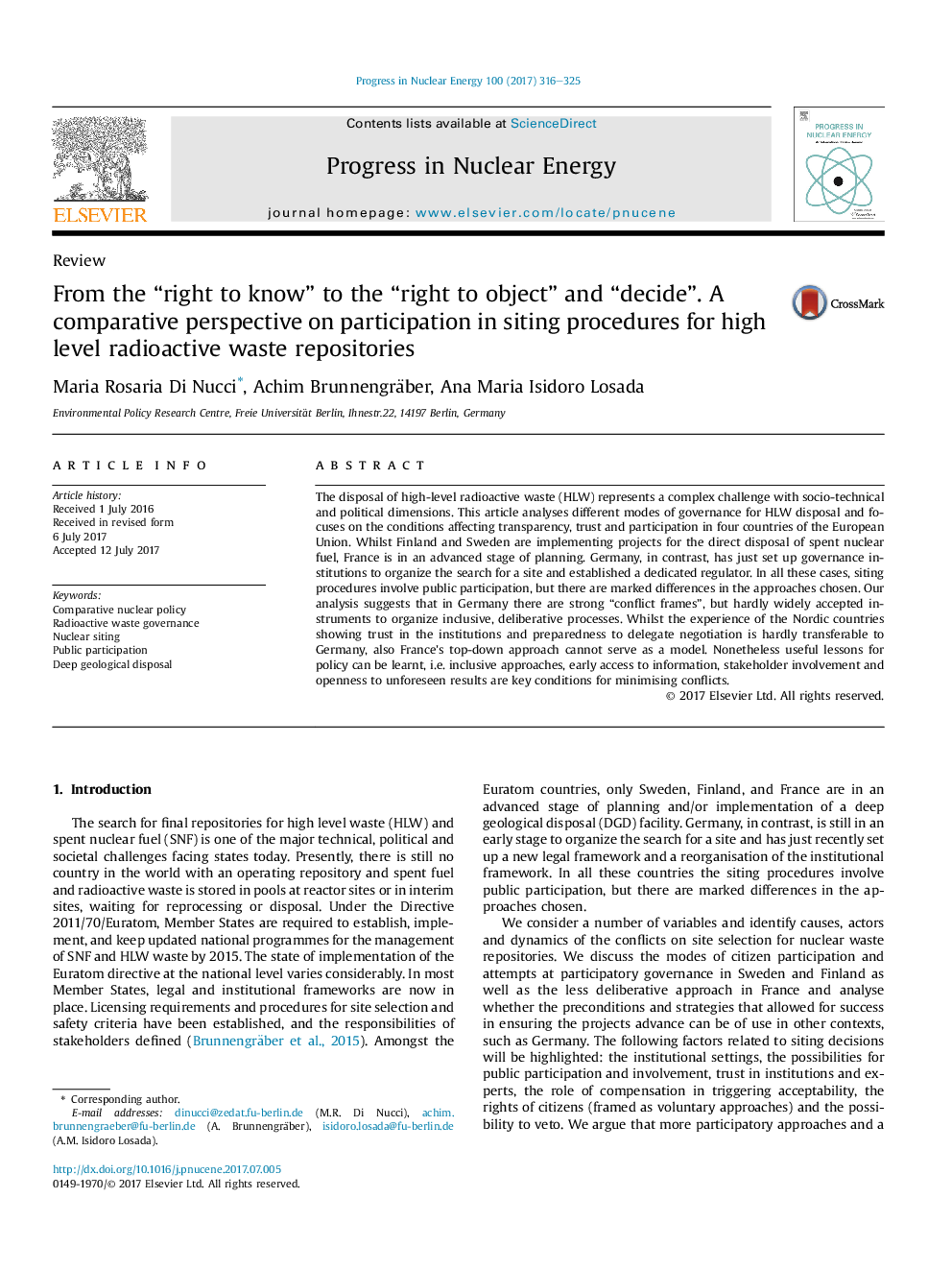| Article ID | Journal | Published Year | Pages | File Type |
|---|---|---|---|---|
| 5478190 | Progress in Nuclear Energy | 2017 | 10 Pages |
Abstract
The disposal of high-level radioactive waste (HLW) represents a complex challenge with socio-technical and political dimensions. This article analyses different modes of governance for HLW disposal and focuses on the conditions affecting transparency, trust and participation in four countries of the European Union. Whilst Finland and Sweden are implementing projects for the direct disposal of spent nuclear fuel, France is in an advanced stage of planning. Germany, in contrast, has just set up governance institutions to organize the search for a site and established a dedicated regulator. In all these cases, siting procedures involve public participation, but there are marked differences in the approaches chosen. Our analysis suggests that in Germany there are strong “conflict frames”, but hardly widely accepted instruments to organize inclusive, deliberative processes. Whilst the experience of the Nordic countries showing trust in the institutions and preparedness to delegate negotiation is hardly transferable to Germany, also France's top-down approach cannot serve as a model. Nonetheless useful lessons for policy can be learnt, i.e. inclusive approaches, early access to information, stakeholder involvement and openness to unforeseen results are key conditions for minimising conflicts.
Related Topics
Physical Sciences and Engineering
Energy
Energy Engineering and Power Technology
Authors
Maria Rosaria Di Nucci, Achim Brunnengräber, Ana Maria Isidoro Losada,
